Case 1
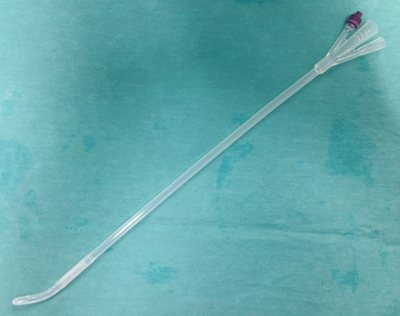
- What is this and what material is it made from?
- What property of the catheter does the size refer to?
- What is the relationship between French size and diameter?
- What is a biofilm?
- How can you reduce catheter related infections?
Case 2
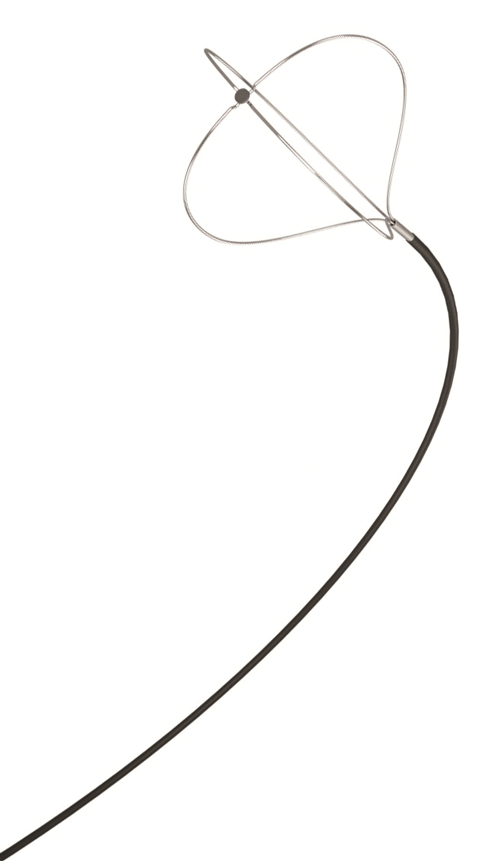
Figure A.
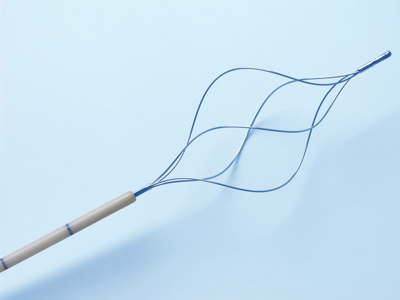
Figure B.
- What are these?
- What material are they made of and why?
- What do the reported basket sizes correspond to?
Case 3
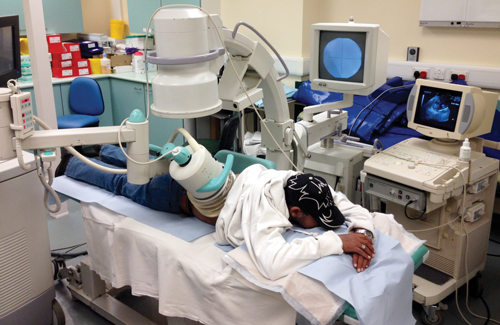
- What treatment is this machine doing?
- What effect does it produce on a stone?
- What are the contra-indications?
- What anatomical factors affect success rates for lower pole stones?
Case 4
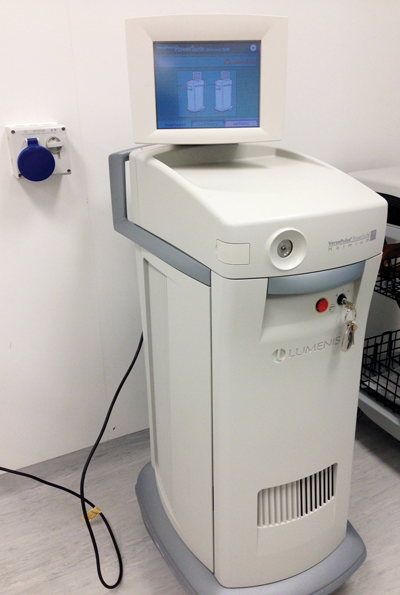
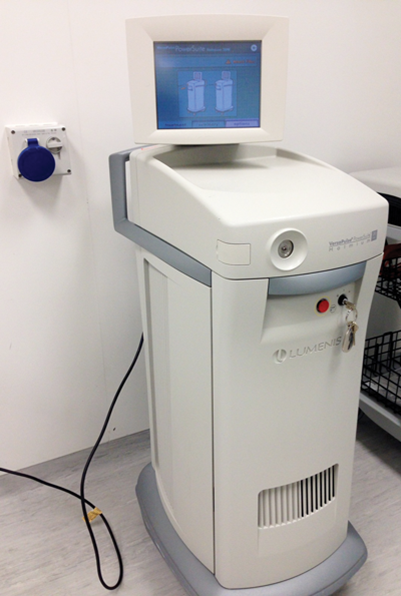
- What is this machine?
- What are the properties of a laser?
- What are the wavelengths of green light laser and holmium laser?
Technology – answers
Case 1
-
Three-way 22Fr coudé tip silicone catheter.
-
French (or Charrière) size refers to the external diameter.
-
French size refers to three times the diameter in millimetres, therefore 22Fr=7.3mm.
-
A biofilm is an adherent layer of microorganisms contained within a self-produced extracellular matrix, which adheres to a surface.
-
Avoid catheters and reduce insertion time, regular changes, good hygiene and keep a closed catheter system.
Case 2
-
Ureteric baskets: (A) no tip basket and (B) a helical dormia basket.
-
No tip basket is made of nitinol (nickel titanium alloy), which has both elasticity and shape memory aiding use in flexible instruments. Helical dormia basket is made of stainless steel, offering strength but can potentially damage a flexible ureteroscope.
-
The diameter of the wire sheath, not the basket itself.
Case 3
-
Shock wave lithotripsy.
-
Spalling effect (leading edge shatters), compression / squeezing as shock waves pass through stone, cavitation due to micro bubbles and negative pressure.
-
Pregnancy, bleeding diatheses, uncontrolled urinary tract infections, severe skeletal malformations, severe obesity, arterial aneurysm in the vicinity of the stone, anatomical obstruction distal to the stone.
-
Infundibulum anatomy: angle <70°, length >3cm and width <5mm.
Case 4
-
Holmium laser machine.
-
Laser energy is: monochromatic, collimated and coherent.
-
Green light laser: 532nm. Holmium laser: 2140nm.
References
Elbahnasy AM, et al. Lower-pole caliceal stone clearance after shockwave lithotripsy, percutaneous nephrolithotomy, and flexible ureteroscopy: impact of radiographic spatial anatomy. J Endourol 1998;12(2):113-19.
Acknowledgement
The authors would like to thank Porges-Coloplast for the supply of the basket images.
For Part 2 of this topic click here.
For Part 3 of this topic click here





